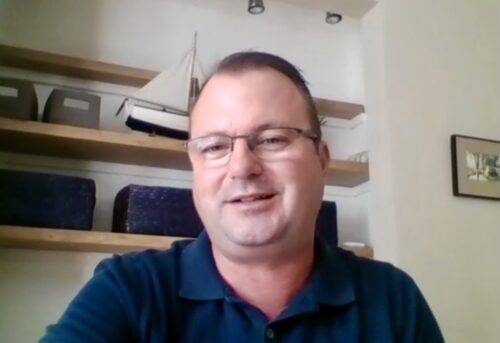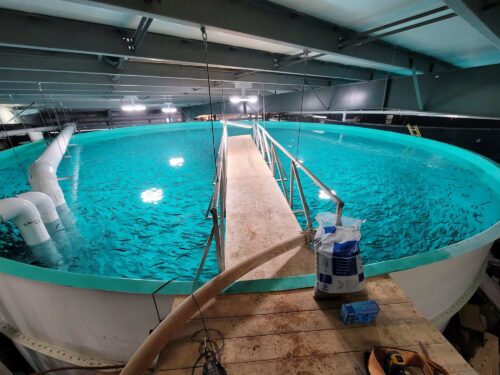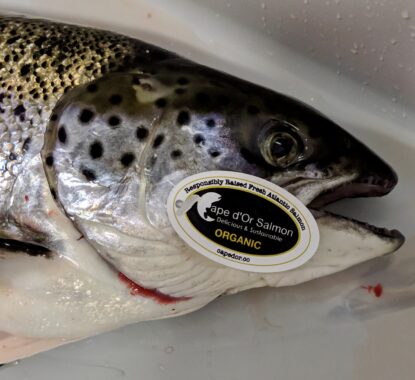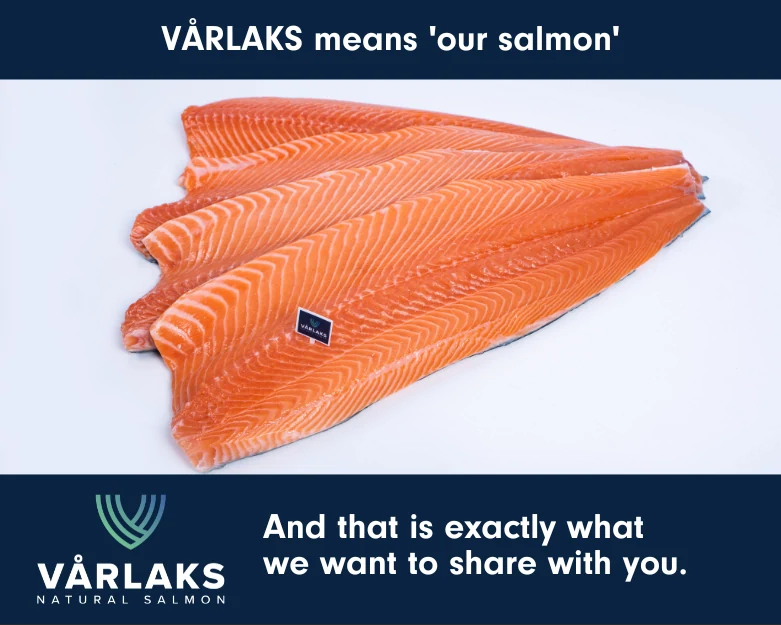A Canadian land-based salmon producer says its fish will be in the US market by the end of summer following an expansion program that will see a doubling of its 250-tonne capacity.
Cape d’Or Salmon is located in the rural community of Advocate Harbour in Nova Scotia, which is three hours away from Halifax, the provincial capital.
“It’s remote but not so remote so we are able to have our own trucking. All the major trucking lines come out of Halifax so the fish are brought into the city to be transported to our customers. We’re able to essentially process our fish say, on a Monday, and they can be with customers by Wednesday,” says sales executive Stefan Lebrun.

He is now talking with distributors in the United States to re-establish the company’s presence there by this fall.
“We did it fairly major expansion in 2020. We’re trying to grow the operations in a way that we can manage the growth and develop the markets as we have more fish. By next year, we plan to be at 500 tons,” he says. “Our goal is to have fish available 52 weeks of the year.”
Niche player
The farm was a smolt supplier for many years until the farmed salmon industry in eastern Canada consolidated. It also used to produce arctic char and halibut, but the owners decided that salmon was the future for the company.
Two things make the RAS operation unique: it uses saltwater instead of freshwater, and it is the only land-based salmon producer in the world that’s certified organic.
“The land itself appealed to the founder, Paul Merlin, because it is a large parcel of land so close to the Bay of Fundy that he could have room to build this farm and also access the saltwater,” he says. Merlin passed away last year but he’s handed the reins over to his son Forrest, who is the president and CEO, years ago.

“The water is sourced from saltwater wells which originate from the ocean. The water filters through 600 feet of sand making it crystal clear and parasite free,” he adds.
An industry consultant familiar with the operations says the saltwater resource is something good that Cape d’Or Salmon has going for. “A successful land-based RAS, assuming you have skilled people, really comes down to three things: correct location, correct technology and correct water source. No one piece of the puzzle can be missing, otherwise you won’t be successful. I think they have a great water source: saltwater from wells, that’s an important distinction.”
The consultant adds: “They’re not very big. I know their location; they don’t have a lot of room to expand further. A small land-based RAS is very niche and hard to make money from, so I don’t know how they are doing financially, but they are trying, for sure.”
Organic certification
The 200m x 100m facility now has 24 fish tanks, each filled with 600m3 of saltwater. They are stocked with the Saint John River strain of Atlantic salmon (the European ones are not legal to farm in Atlantic Canada) at a maximum stocking density of 30kg/m3.
Its produce is certified organic by third-party certification body Pro-Cert. (Swiss Lachs, a RAS salmon farm in Switzerland hopes for an organic certification, but it says there’s currently no organic-certification standards for RAS operations where it operates.)
The salmon are harvested at 10-12 lbs and are transported to customers in head-on-gutted format.
“We have a certified-organic processing plant located on site,” says LeBrun. “Our fish are hand-fed, hand-harvested, and they travel about 200-ft max from the tank to the processing plant where they are also hand-processed. They go from the tank to the ice-packed cartons in a matter of a couple of hours.”
The farm uses organic fishmeal-based feed and it’s devoid of animal by-product. “The cost per tonne is $2,300 more (around US$1,775) than the standard cage cultured feed. It doesn’t have any GMO cereal grains, no laboratory synthesized coloring agents, and no hormones or antibiotics,” he adds.
“When Paul was working with the feed supplier he wanted to create a feed that would be close to what salmon would eat in the wild and give it a taste that is close to wild fish as you can possibly get in farming fish.”
LeBrun notes though that the increasing price of feed is a challenge.

“The salmon price is very strong right now and the market seems to be accepting it. We’re very pleased with that because it is a high-quality product and they think it’s worth it. But many of our costs are also going up dramatically. Our feed cost alone went up by roughly 20 percent this year.”
LeBrun estimates that the organic product has a premium of about 50 percent over non-organic farmed Atlantic salmon.
But while the organic produce is sold as such in Canada, it is a different discussion in the United States where there is no organic certification process for seafood.
“We can sell it to the US as organic when it leaves our plant. We can export it as organic. Once in the US, I think they can say Organic Canadian Product,” LeBrun says.
Outlook
“I think we’ve discovered what works for us and we want to just keep doing it and doing it the best we can,” says LeBrun. “The goal is to continue to do so and continue to produce more and get our fish into more people’s hands.”









